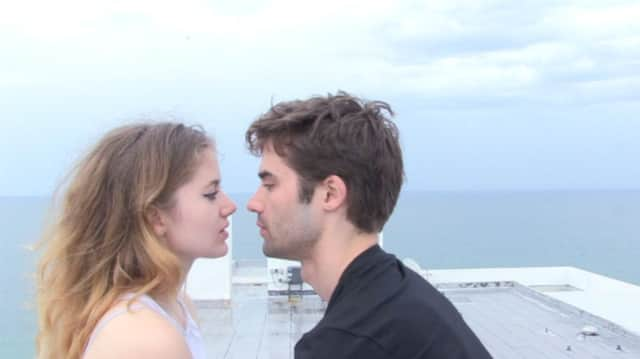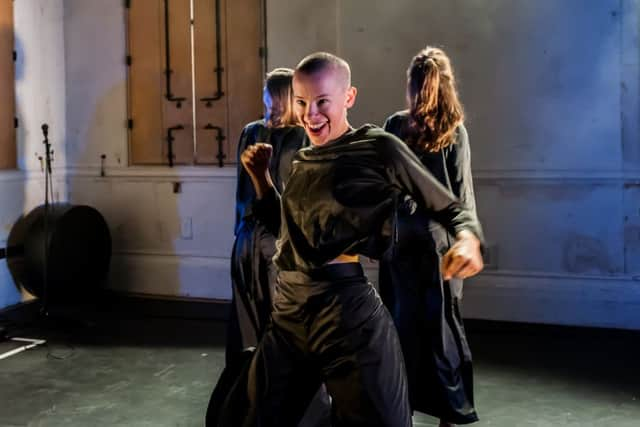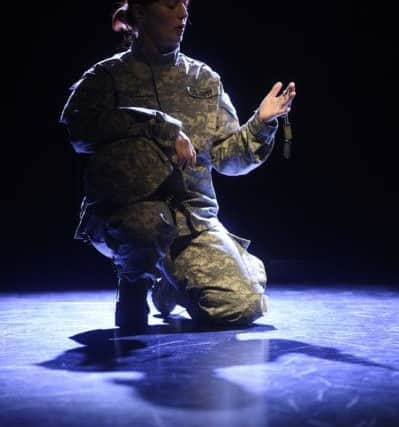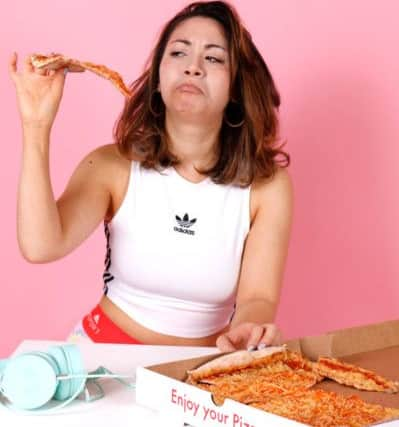Edinburgh Fringe 2018: The shows that were inspired by #MeToo


Last October, the New York Times broke a story in which several women made allegations of sexual harassment against movie mogul Harvey Weinstein. As the Weinstein situation snowballed, it became a catalyst for a worldwide calling of time on men behaving badly towards women. Within ten days, the MeToo hashtag had gone viral.
At that time, in London, four women were in a room making a piece of theatre about the personal experience of one of them who had been stripped and sexually assaulted at gunpoint. Lydia Higginson, a trained costume designer, responded to her experience by deciding to wear only clothes she had made herself; her MadeMyWardrobe blog was widely picked up in mainstream media.
Advertisement
Hide AdAdvertisement
Hide AdNow she has enlisted her three best friends – theatre-maker Josie Dale-Jones, who runs the company ThisEgg, which has brought productions like Me and My Bee to the Fringe, singer-songwriter Imogen Mahdavi and dancer/choreographer Olivia Norris – to make Dressed, a piece of theatre about friendship and healing and, yes, sexual assault.


“The Harvey Weinstein allegations threw everything up in the air for us,” Dale-Jones says. “We had to decide if we should change what we were doing, or just be aware that people would read what we made in a different way. But it was also an encouragement – a reminder that these voices need to be heard, these stories are important.”
Ultimately, it was the spur which made them decide to bring Dressed to the Fringe this year.
It is one of several shows in which women explore personal experiences of sexual assault and rape, rejecting received narratives and making their own decisions about how the stories should be told.


Love Songs, by Alissa Anne Jeun Yi, developed at Soho Theatre Writer’s Lab, uses poetry, rap and spoken word to explore themes of love and relationships, including her experience of being the victim of sexual assault while at university. She speaks of her “frustration” at the narrative stereotypes around sexual assault.
“Sexual violence is used again and again to darken a crime drama or shock the audience. The only narratives we are fed about women who have been raped is that they are doomed to live weak, sad, depressing lives and struggle to form loving, intimate sexual relationships or trust others. No wonder I didn’t want to identify as ‘victim’ or as ‘survivor’.”
Advertisement
Hide AdAdvertisement
Hide AdShe wanted to appear a fully rounded character – as a mixed-race woman, she is particularly aware of the typecasting around East Asian women – and to use humour. “I think that, because the show is autobiographical, I do have more freedom to use comedy to tell the story how I want to tell it. I’m not trying to represent or do justice to every single experience of sexual assault, I want to demonstrate that people will navigate these experiences in different ways. I have worked hard to make this a loving and empowering show that safeguards both myself and those who I’m performing it to.”
Samira Elagoz, a Finnish-Egyptian performance artist and film-maker, has performed her show Cock Cock… Who’s There? in several countries in Europe. She had the idea, she says, a year after being raped. “I jokingly considered it an anniversary and asked friends to make some video commentary for me. That might sound a bit dark, but levity can be an effective way to deal with things.” This blossomed into a research project where she filmed both men and women talking about relationships, and blended this with her own story using a mixture of film and live performance.


Like Yi, she struggled to find a narrative she could identify with. “I knew I didn’t want it to be a victim story reliving the event. It was far more important and intriguing for me to expose the actions one might take after being raped. I wanted to unburden the audience of the discomfort of seeing me as a victim and have a frank discussion about the actual topic, not attacking or vilifying men, so that the piece could be accessible for them too. I lacked any stories about the aftermath I could actually identify with, so I decided to share my own.”
All the women had to make careful decisions about how much information to disclose about their experiences and in what way. Alissa Anne Jeun Yi felt it was important – if challenging – to keep “truthful descriptions of the characters, places and act” in the show, without naming names. By contrast, costume designer Higginson felt it was part of her safeguarding process not to disclose the details of her assault, including where and when it happened.
All of the women have struggled with the tension of doing justice to a traumatic experience while making a show which is also about the positives: healing, friendship, the possibility of moving on. Dale-Jones says the Dressed team made use of non-naturalistic elements of theatre to deal with traumatic events, and have been able to draw on a diverse skills base – song-writing, choreography and costume design – to communicate what can be difficult to say in words.
• READ MORE: 5 Fringe theatre shows we already know are great
Many of these issues were also explored by Mary Jane Wells, the writer and performer behind Heroine, the true story of an American servicewoman raped by three fellow soldiers. Wells worked very closely with the woman to whom the events happened, known only as Danna Davis (not her real name). In order to protect Danna’s identity, many details of her story had to be changed, but Wells insists it is still authentic. “Dates, names and places have been changed but the emotional impact of what happened to her is there,” she says.
Advertisement
Hide AdAdvertisement
Hide AdBoth Wells and Davis are passionate about raising awareness of Military Sexual Trauma (MST), one area which seems as yet almost untouched by the sea-change of #MeToo. According to a Department of Defence report, there is a sexual assault in the US military every 35 minutes. A woman in the military is more likely to be raped than to be killed in combat, and only 3 per cent of cases are prosecuted.
Wells trained at Royal Scottish Conservatoire in Glasgow, but met Davis when she was working as a voice-artist in Los Angeles. Heroine, which is directed by the award-winning Susan Worsfold, is part of the Made in Scotland showcase. Wells says she was concerned, throughout, both about Davis’s well-being and the well-being of the audience.
“I toned down the rape event in some ways, you get the impact without knowing the exact detail. I don’t want to shy away from it, or normalise it, or minimise it, so we do talk about it quite directly, but things are signposted clearly, you know it’s coming. You are blasted with it, but never for too long. I hope it’s done in a way that people feel taken care of.”
Like all the stories discussed here, it is ultimately a story of healing. “There’s been nothing more satisfying than seeing Danna’s story start to fly, and nothing more touching for both of us when other people say: ‘This has value’. Stories like hers have immense value, we’re just told not to recognise that.”
• Dressed, Underbelly, until 26 August; Love Songs, Underbelly, until 26 August; Cock, Cock… Who’s There?, Summerhall, until 26 August; Heroine, Assembly Hall, until 26 August